
University of Bristol Botanic Garden
Explore diverse global plant collections and serene landscapes at the University of Bristol Botanic Garden, a living story of nature and science.
The University of Bristol Botanic Garden is a 1.77-hectare green sanctuary in Stoke Bishop, Bristol, showcasing diverse plant collections from around the world. Open daily with seasonal hours, it features themed displays including evolutionary biology, Mediterranean climates, local flora, and rare native plants. The garden also hosts exotic species in its glasshouses, such as orchids, carnivorous plants, and the giant Amazon water lily. Visitors enjoy educational tours, a charming Victorian house backdrop, and a relaxing café environment.
A brief summary to University of Bristol Botanic Garden
- Stoke Park Rd, Bristol, Stoke Bishop, BS9 1JG, GB
- +441174282041
- Visit website
- Duration: 1.5 to 3 hours
- Mid ranged
-
Outdoor
- Mobile reception: 4 out of 5
- Monday 10 am-4:30 pm
- Tuesday 10 am-4:30 pm
- Wednesday 10 am-4:30 pm
- Thursday 10 am-4:30 pm
- Friday 10 am-4:30 pm
- Saturday 10 am-4:30 pm
- Sunday 10 am-4:30 pm
Local tips
- Visit on Wednesdays for DAISY days offering free entry for many visitors and a family-friendly atmosphere.
- Join a guided tour to deepen your understanding of the garden’s unique plant collections and history.
- Check the garden’s website for seasonal opening hours, especially during winter months when weekend access is limited.
- Use public transport where possible; several bus routes serve the garden with stops nearby and frequent service.
- Bring a picnic to enjoy in the garden’s designated picnic areas for a relaxing outdoor experience.
For the on-the-go comforts that matter to you
- Restrooms
- Food Options
- Seating Areas
- Picnic Areas
- Information Boards
Getting There
-
Bus
From Bristol city centre, take bus number 4 to Stoke Bishop and alight at Downleaze stop; the garden is a five-minute walk from there. Buses run approximately twice an hour during opening hours. Alternatively, buses 1, 2, 2a, 3, 505, or Y5 stop at Black Boy Hill, a 10-15 minute walk to the garden.
-
Train and Bus Combination
From Bristol Temple Meads train station, take bus numbers 1, 2, or 2a to Black Boy Hill stop. The garden is a 10-15 minute walk from the stop. Bus frequency is about 7-8 per hour on weekdays, ensuring convenient access.
-
Car
Drive via Stoke Park Road where parking is available nearby. Note that parking spaces may be limited during peak times, and the garden encourages the use of public transport to reduce congestion and environmental impact.
University of Bristol Botanic Garden location weather suitability
-
Any Weather
-
Rain / Wet Weather
-
Mild Temperatures
-
Clear Skies
Discover more about University of Bristol Botanic Garden
A Living Tapestry of Plant Diversity
Nestled within the Stoke Bishop area of Bristol, the University of Bristol Botanic Garden spans 1.77 hectares and serves as a vibrant repository of plant life. It is carefully curated to tell the story of plant evolution and diversity through four core collections: the evolution of plants, Mediterranean climate regions, local flora and rare native species, and useful plants. Among the latter is a unique Chinese herb garden, home to the largest collection of traditional Chinese medicinal herbs in Europe. These collections are planted in evocative displays that transport visitors to various global habitats, illustrating the drama and adaptation of plants in the wild.Architectural Charm and Exotic Glasshouses
The garden’s setting is enhanced by a striking Victorian house that provides a historic and atmospheric backdrop. Complementing the outdoor collections are large glasshouses that create the ideal microclimates for exotic species such as cacti, orchids, carnivorous plants, and aquatic wonders like the giant Amazon water lily and sacred lotus. These glasshouses offer a rare glimpse into tropical and subtropical plant life, unique within Bristol, and enrich the visitor experience with their lush, vibrant displays.Educational Engagement and Guided Experiences
The Botanic Garden is not only a place of beauty but also of learning. It offers a variety of guided tours, including curator-led walks that delve into the garden’s history, plant collections, and ongoing conservation work. These tours typically last around 1.5 hours and provide in-depth insights suitable for both plant enthusiasts and casual visitors. Group tours and school visits are also available, fostering education and appreciation for botany across all ages.Visitor Amenities and Seasonal Access
Open daily from 10:00 am to 4:30 pm, the garden adjusts to winter hours by closing on weekends from November through February. Entry fees apply for adults, with concessions for university staff, alumni, students, and free access for children under 18 and carers. The site includes accessible restrooms, a welcoming café with indoor and outdoor seating, picnic areas, and wheelchair borrowing services to ensure a comfortable visit for all. The garden’s enclosed design offers a tranquil escape from the urban surroundings, with little sign of the city beyond its borders.Location and Transport Connectivity
Situated on Stoke Park Road, the garden is accessible by several bus routes from Bristol city centre and Temple Meads train station, with frequent services and nearby stops. Walking routes vary in terrain, with some paths including grass or bare soil, which may affect accessibility in wet weather. Parking is available close by, and the garden encourages sustainable transport options to reduce environmental impact.Conservation and Community Role
As part of the University of Bristol, the Botanic Garden plays a vital role in plant conservation, research, and public engagement. It supports biodiversity by cultivating rare and native species and educating visitors about the importance of plants in ecosystems and human culture. The garden is locally managed and emphasizes sustainable practices, contributing to Bristol’s green spaces and community wellbeing.Iconic landmarks you can’t miss
Memorial Arch
1.8 km
A solemn Grade II listed arch honoring Clifton College’s fallen heroes of the World Wars, blending history, tradition, and architectural grace.
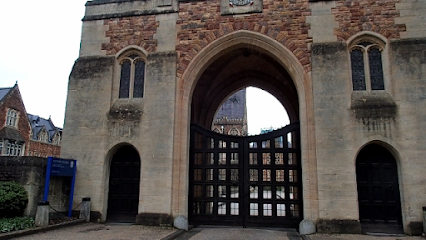
William Draper Memorial
2.3 km
Explore Britain’s oldest war memorial, honoring 18th-century soldiers on scenic Clifton Down in historic Bristol.
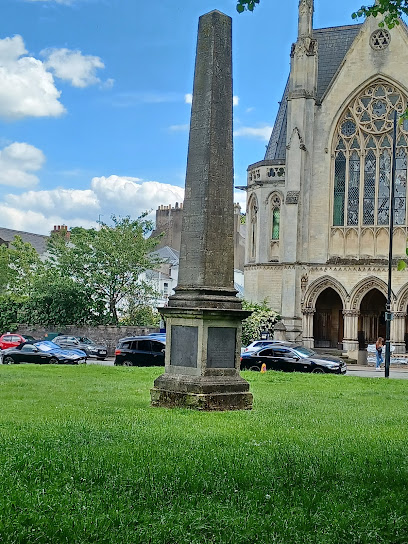
The Lookout Lectern
2.6 km
Historic vantage point with sweeping views of Brunel's iconic bridge and Bristol's storied past.
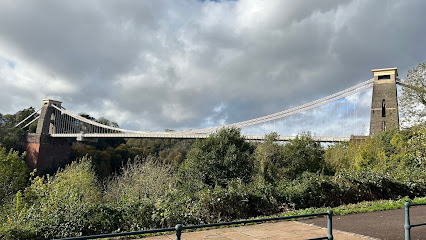
Bristol Rocks
2.6 km
Discover the beauty and adventure of Bristol Rocks, the ultimate destination for rock climbing enthusiasts and nature lovers in the heart of Bristol.

Southmead Round Barrow
2.7 km
Explore the ancient Southmead Round Barrow, a Bronze Age burial mound nestled within Bristol’s tranquil Badock’s Wood.
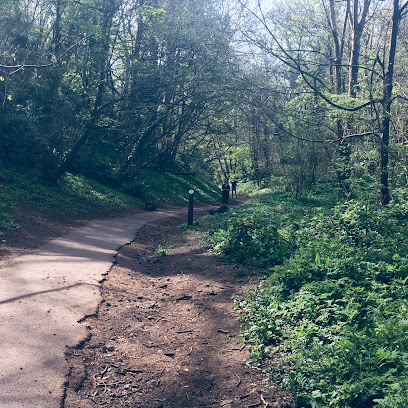
Statue of Edmund Burke
3.3 km
A bronze tribute to Edmund Burke on Bristol’s waterfront, where 18th-century ideals meet modern city life.
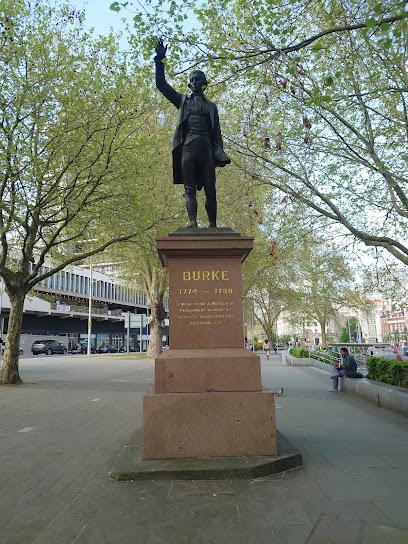
Statue of Ram Mohan Roy
3.3 km
A dignified bronze tribute in Bristol honoring Ram Mohan Roy’s legacy as a pioneering Indian reformer and visionary.
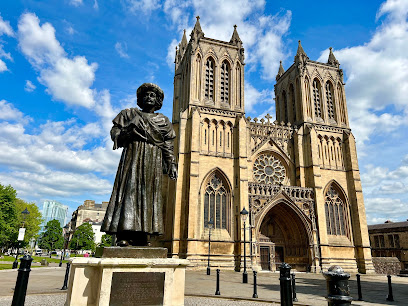
Guided Walking Tour - From Blackbeard to Banksy
3.3 km
Experience the captivating history of Bristol on a guided walking tour from Blackbeard to Banksy, blending maritime tales with modern artistry.
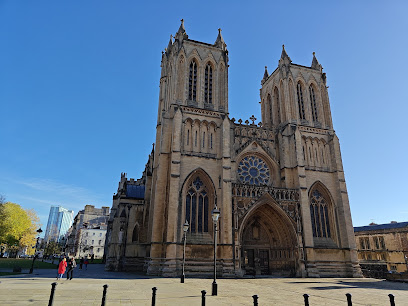
The Centre
3.3 km
Explore The Centre in Bristol, a vibrant tourist attraction and historical landmark, where culture, shopping, and scenic beauty converge.
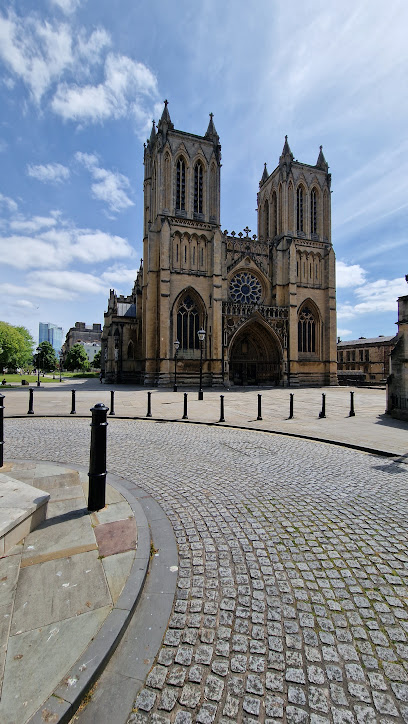
Statue of Queen Victoria
3.4 km
A majestic marble tribute to Queen Victoria on Bristol’s College Green, blending history, art, and royal heritage in the city’s heart.
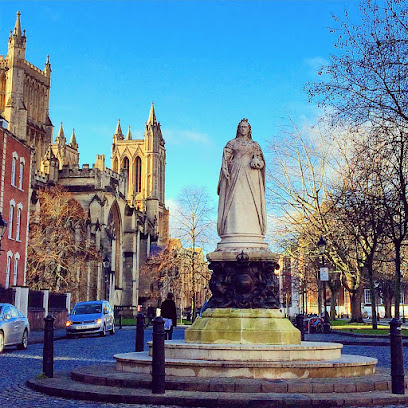
Bristol Cathedral
3.4 km
Discover nearly 900 years of history, stunning Gothic architecture, and serene sanctuary at Bristol Cathedral in the heart of Bristol.
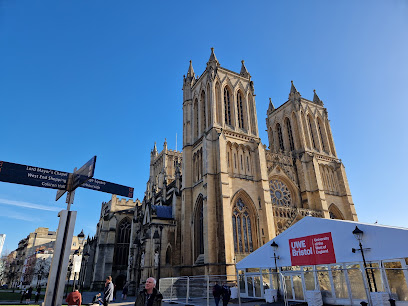
Being Brunel
3.4 km
Discover the legacy of Isambard Kingdom Brunel at Being Brunel, an interactive museum celebrating the genius of British engineering in Bristol.
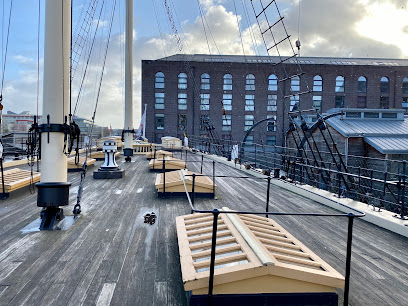
Brunel's SS Great Britain
3.4 km
Discover the history of maritime innovation at Brunel's SS Great Britain, Bristol's premier maritime museum and iconic ship experience.
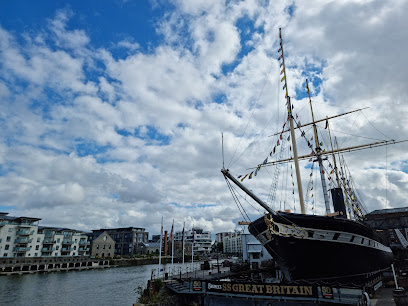
The Nails
3.4 km
Historic iron nails in Bristol’s Corn Street where medieval merchants sealed their deals, embodying the city’s rich trading heritage.
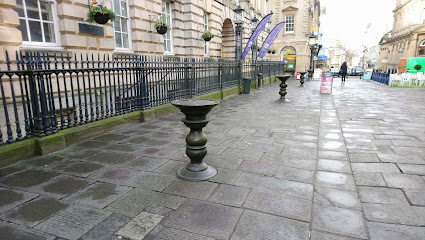
Old Post Office
3.4 km
Discover Bristol’s 18th-century Old Post Office, a preserved Georgian landmark blending rich history with vibrant city life at Corn Street.
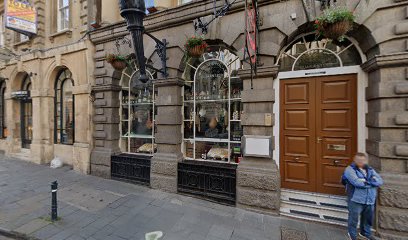
Unmissable attractions to see
Sea Walls
1.1 km
Iconic Victorian suspension bridge spanning Avon Gorge with breathtaking views and rich engineering heritage in Bristol.

Clifton Down
1.4 km
Expansive green parkland offering stunning views, wildlife habitats, and peaceful recreation in the heart of Bristol.
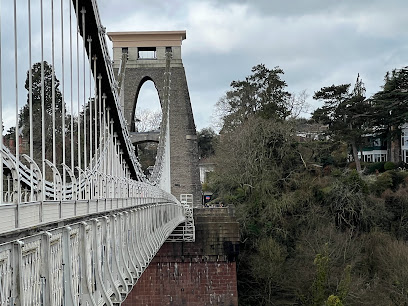
Clifton Cocktail Club
1.8 km
A tucked-away basement cocktail bar in Clifton serving crafted, table-service drinks and intimate late-night evenings.
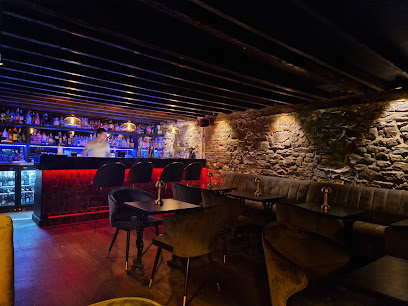
National Trust - Leigh Woods
2.0 km
Explore ancient woodland and breathtaking Avon Gorge views at Leigh Woods, a serene nature reserve near Bristol with trails for all abilities.

Clifton Observatory
2.3 km
Historic observatory with one of the UK’s few working Camera Obscuras, Giant’s Cave adventure, and stunning views of Clifton Suspension Bridge.
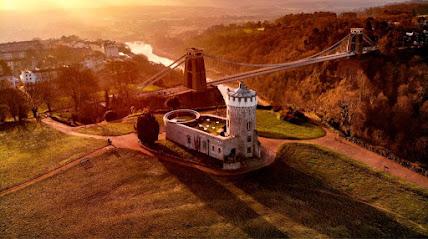
St Vincent's Rocks
2.4 km
Historic cliffside landmark in Clifton offering dramatic views, ancient caves, and rich cultural heritage above the Avon Gorge.
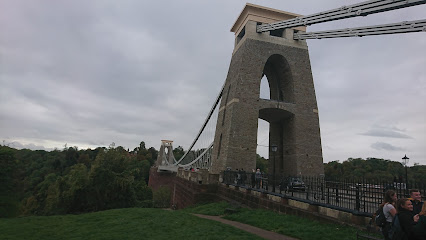
Giant's Cave
2.4 km
Descend into legend and emerge with views of Bristol's most iconic bridge from an unforgettable angle.

Butt polished rock
2.4 km
Discover the subtle geological wonder of Butt Polished Rock nestled in Bristol’s historic and scenic Clifton district.
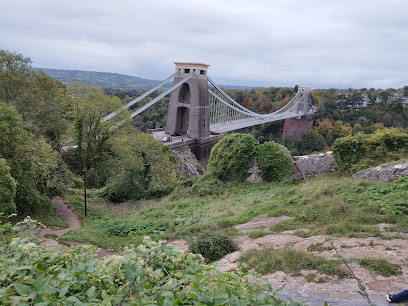
The Clifton Arcade
2.5 km
Discover Victorian splendour and indie treasures in Bristol's Clifton Arcade, where over 20 unique boutiques offer vintage finds, art, and artisanal gifts in a charming covered passage.
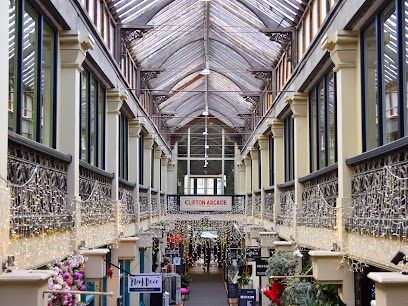
Victoria Square
2.5 km
Elegant Victorian square in Clifton, Bristol, blending historic architecture, tranquil gardens, and cultural heritage in a prestigious setting.
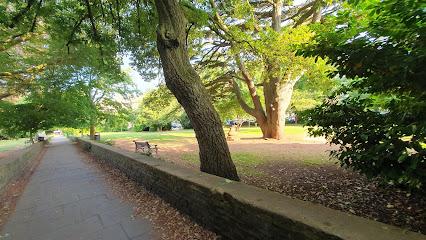
Clifton Suspension Bridge
2.5 km
Iconic Victorian suspension bridge spanning the Avon Gorge with stunning views, free museum, and engaging guided tours in Bristol.

The Mall Gardens
2.5 km
A serene and charming green oasis nestled in Clifton, offering peaceful gardens framed by historic architecture and community spirit.
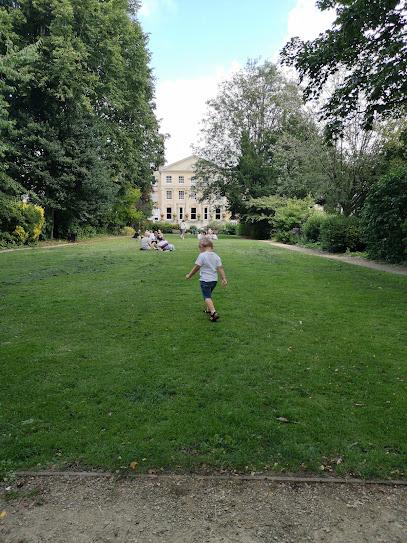
Clifton Suspension Bridge Visitor Centre (Free Entry)
2.7 km
Explore the iconic Clifton Suspension Bridge’s history and engineering at the free Visitor Centre with interactive exhibits and guided tours.
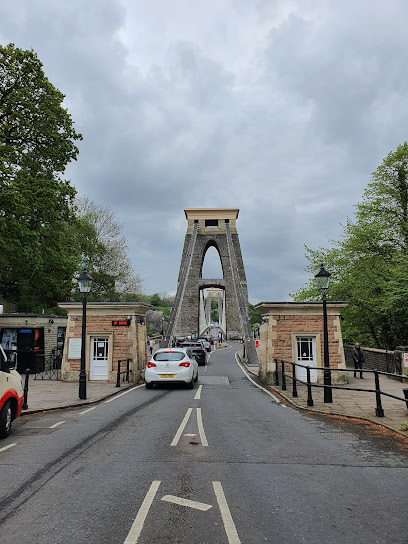
Bristol Museum & Art Gallery
2.7 km
Explore Bristol’s rich heritage and art treasures in a stunning Edwardian Baroque museum with free entry and diverse exhibits.
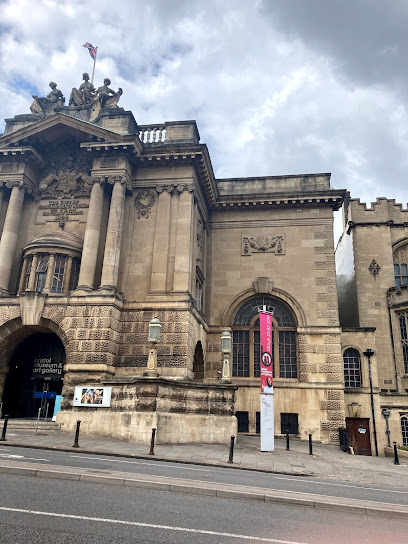
The Paragon
2.8 km
Discover the charm of The Paragon in Bristol, a perfect blend of history, culture, and modernity for every traveler.
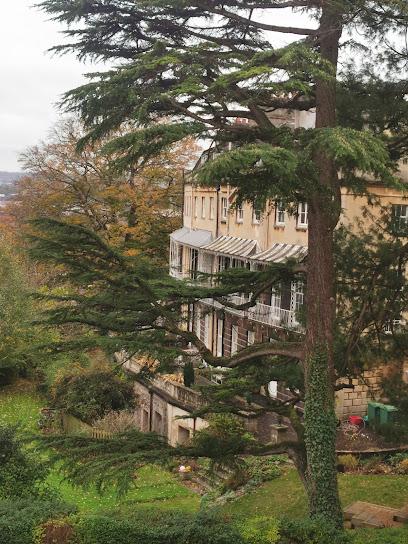
Essential places to dine
littlefrench
0.8 km
A cosy, authentic French bistro in Bristol’s Westbury Park, serving hearty classics and refined dishes with warm, friendly service.
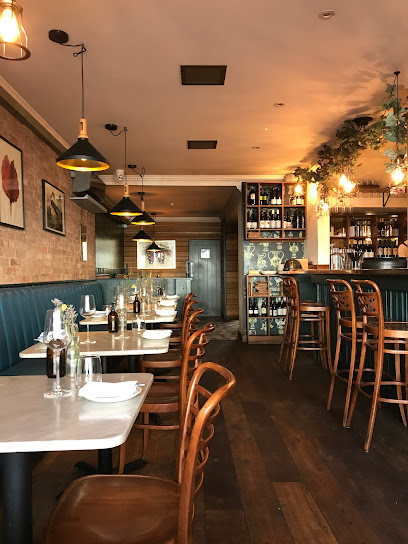
Wilson's Restaurant
1.8 km
Michelin-starred farm-to-table dining in Bristol’s Redland, blending seasonal British flavors with sustainability in a cozy bistro setting.

Bravas
1.9 km
Experience authentic Spanish tapas in Bristol’s cozy and lively Bravas, where traditional flavors meet seasonal creativity.

Muiño
1.9 km
Cozy Spanish tapas with authentic flavors and a warm atmosphere in Bristol’s charming Redland neighborhood.
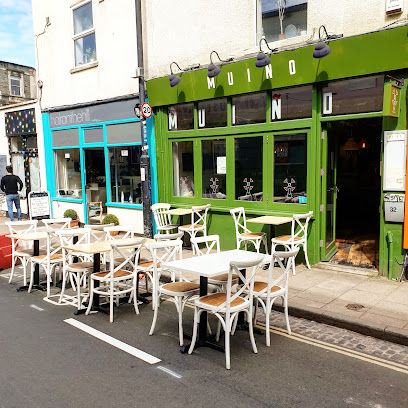
Racks Bar & Kitchen
2.3 km
A vibrant Clifton hotspot blending historic cellar charm with gourmet British and Mediterranean cuisine in a lively, stylish setting.
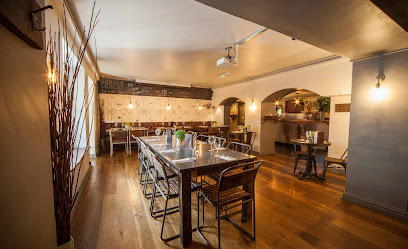
Côte Clifton Village
2.4 km
Classic French brasserie charm meets modern dining in the heart of Bristol’s Clifton Village.

Clifton Sausage
2.5 km
Experience expertly crafted British sausages and seasonal local dishes in the warm, inviting heart of Bristol’s Clifton Village.
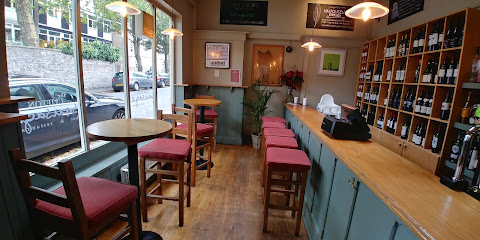
No.4 Clifton Village
2.5 km
Charming Georgian hotel in Bristol’s Clifton Village with cozy rooms, a private garden, and the acclaimed No.4 Clifton Village restaurant.
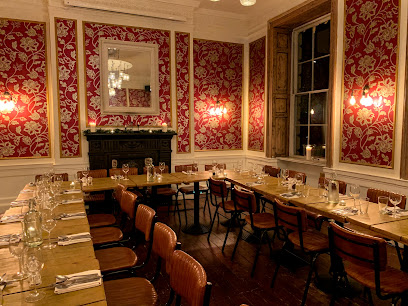
Bulrush
2.5 km
A Michelin-starred tasting menu in a former greengrocer’s – inventive, intense, and unforgettable modern British cooking in Bristol’s Cotham.

The Ivy Clifton Brasserie
2.6 km
Elegant British brasserie in Clifton, Bristol, blending local heritage with refined dining and vibrant afternoon teas.
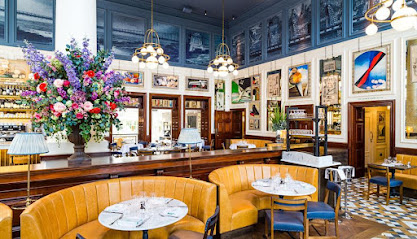
New Moon Tapas
2.6 km
A stylish tapas spot in Bristol’s Clifton Village blending global flavours with inclusive, creative small plates and vibrant cocktails.
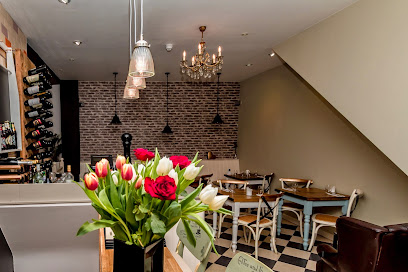
Chris and Jo's Kitchen
2.6 km
A Bristol gem serving hearty, seasonal British food in a warm, unpretentious setting where every meal feels like a home-cooked feast.
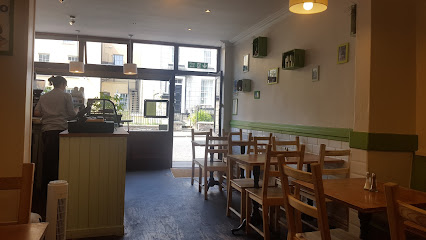
Lost & Found Bristol
2.6 km
Theatrical cocktails and creative cuisine in Clifton's most Instagram-worthy venue.

Giggling Squid - Clifton
2.6 km
Experience authentic Thai flavors and vibrant dining in the heart of Clifton Village at Giggling Squid, Bristol’s beloved Thai restaurant.

Coppa Club, Clifton
2.7 km
Stylish Italian dining and vibrant social hub in Clifton Village, Bristol, perfect for all-day meals and lively evenings.

Markets, malls and hidden boutiques
The Bristol Artisan
1.3 km
Discover Bristol’s curated home for handmade, sustainable gifts and homewares crafted by over 80 independent makers.

Ashwell & Co
1.8 km
Retro elegance meets homemade indulgence: vintage treasures and legendary scones in Clifton's cozy tearoom.

Inca
1.8 km
Discover artisanal wonders and unique souvenirs in the heart of Bristol's chic Clifton Down, where bohemian charm meets everyday elegance.

Clifton Down Shopping Centre
1.9 km
Bristol's Clifton hub: supermarkets, shops, coffee, and convenience right by the station on leafy Whiteladies Road.
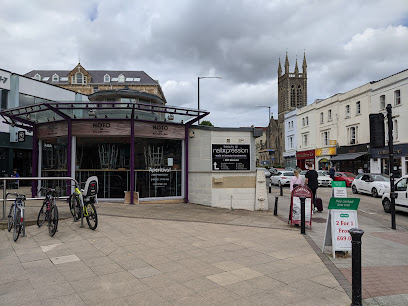
Soukous
2.0 km
Eclectic gift shop on Bristol's vibrant Cotham Hill, offering curated homeware and artisan treasures.
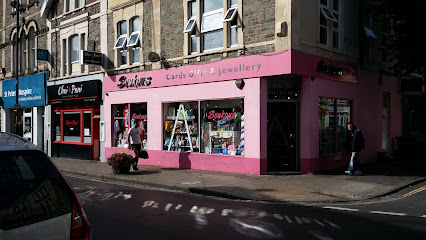
iota bristol
2.4 km
Discover premium hi-fi audio and unique gifts at iota bristol, a boutique gem in Bristol’s vibrant Bishopston neighborhood.
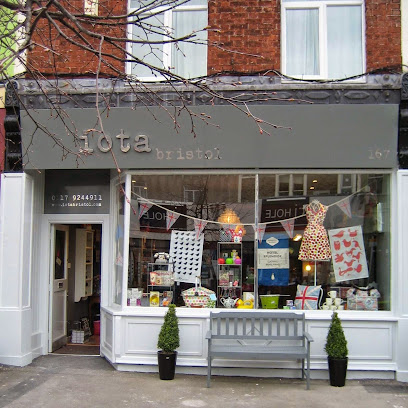
MAKE - Independent Clothing Store - Gloucester Road Bristol
2.4 km
Discover unique, sustainable fashion and local artistry at MAKE, Bristol’s independent boutique on vibrant Gloucester Road.

USTUDIO Shop
2.5 km
A Bristol concept store blending Scandinavian and Japanese design in stationery, lifestyle goods, homewares, and self-care essentials.

Grace & Mabel Ltd
2.5 km
Discover handpicked elegance at Grace & Mabel Ltd, the Clifton Village boutique where three sisters craft a world of timeless fashion, quality, and personal style since 2007.
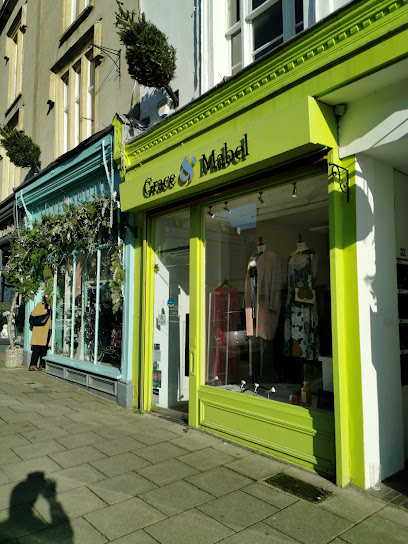
Village
2.5 km
A compact, design-led gift shop in Clifton Village offering locally made homewares, stationery and small-batch finds with a quietly curated, neighbourhood feel.
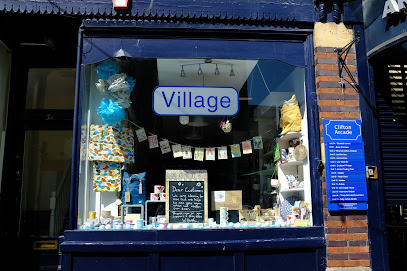
The Pod Company
2.5 km
Discover cutting-edge wellness with The Pod Company’s innovative ice baths and sauna pods in the heart of Clifton, Bristol.
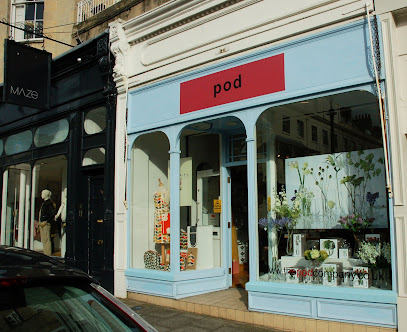
Indira Rose Vintage
2.5 km
Discover mid-century magic across three floors in Clifton's chic village—timeless antiques and vintage furniture await in Bristol's premier trove.
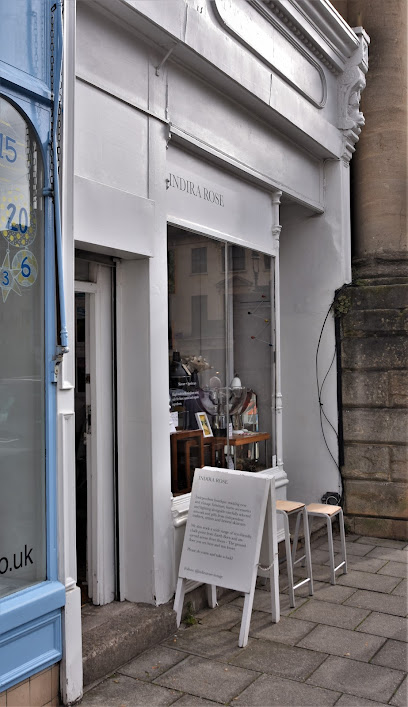
Mint Velvet Bristol
2.6 km
Discover relaxed glamour and personalized style at Mint Velvet Bristol, a chic ladies' boutique in Clifton's fashionable Regent Street.

Movement Boutique
2.6 km
Discover curated designer fashion, jewellery, and homewares in the stylish heart of Clifton, Bristol’s charming historic district.
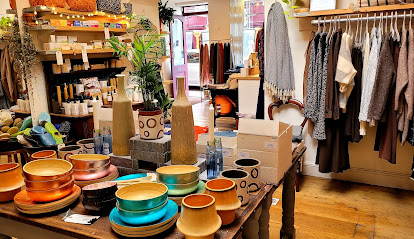
About Face
2.6 km
Discover curated gifts and artisanal treasures in Clifton's charming village heart, where unique finds meet personal service in a cozy Bristol gem.
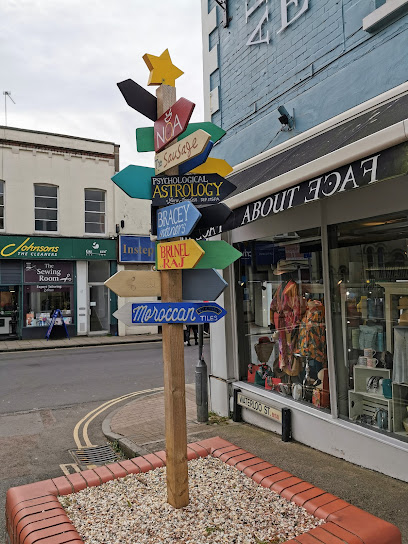
Essential bars & hidden hideouts
Steam
1.8 km
Bristol's premier beer hall in a historic station, serving craft brews, bottomless brunches, and pizzas on a festival terrace amid Clifton's charm.
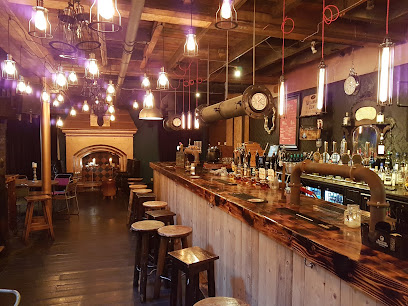
The Whitmore Tap, Bristol
1.9 km
A lively Butcombe flagship pub on Whiteladies Road, blending classic ales, hearty food, games, and live sports in a welcoming Bristol setting.
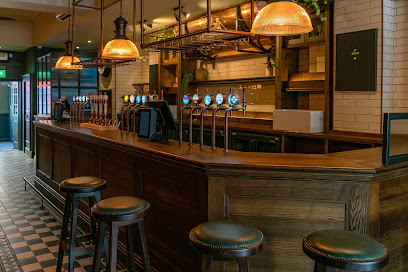
Alterego
2.0 km
A lively cocktail and sports bar in Bristol’s Redland, perfect for creative drinks, karaoke nights, and memorable social gatherings.

The Bootlegger
2.4 km
Step into Bristol’s Bootlegger for vintage cocktails, a cozy speakeasy vibe, and expertly crafted drinks inspired by the Prohibition era.

The Coronation Tap
2.5 km
Bristol's legendary ciderhouse near Clifton Suspension Bridge, famed for potent Exhibition scrumpy, live tunes, and timeless tavern vibes in cozy Clifton.
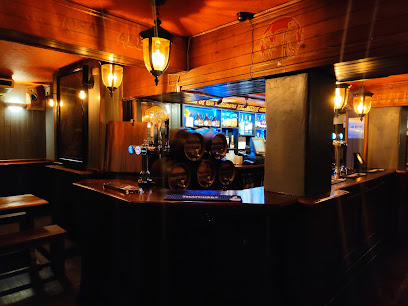
The Dirty Bird
2.5 km
A vibrant neon-lit cocktail lounge in Clifton Village, Bristol, mixing classic and creative drinks with a lively, intimate atmosphere.
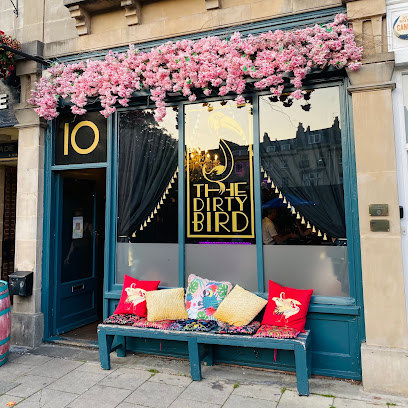
22 Clifton
2.5 km
A vaulted Clifton wine cellar mixing Georgian bones with a modern wine-bar programme, tastings and sharing plates in an intimate setting.

Barrelhouse
2.5 km
Clifton's hybrid pub where Detroit pizzas, rooftop views, live tunes, and dive-bar cocktails create unrestrained fun in a historic setting.
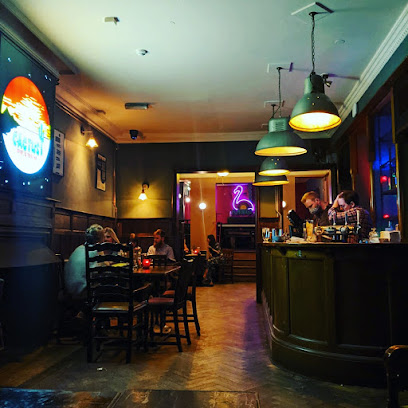
The Quadrant
2.6 km
Cosy Clifton wine bar with a curated drinks list, small plates and buzzy window seats in the heart of the village.
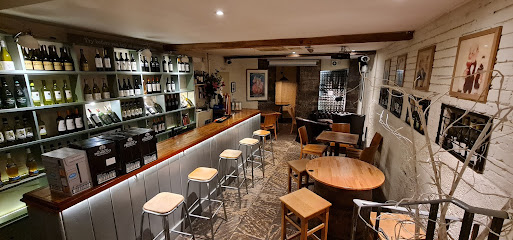
The Cocktail Club - Triangle Bristol
2.6 km
Step into Bristol’s Neverland-inspired Cocktail Club for expertly crafted drinks, quirky décor, and nights that never want to end.

The Brass Pig
2.7 km
Clifton's two-floor nightlife gem: cocktails from £3.50, DJ weekends, terrace vibes, and student deals in Bristol's Triangle hub.
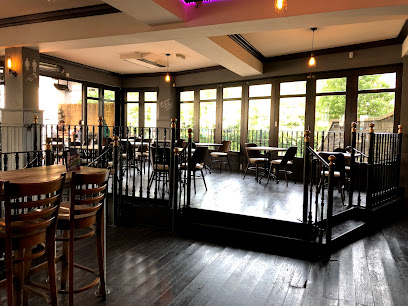
Be At One - Bristol
2.7 km
Energetic cocktail bar in Clifton, Bristol, serving over 100 expertly crafted drinks with vibrant vibes and unbeatable happy hour deals.
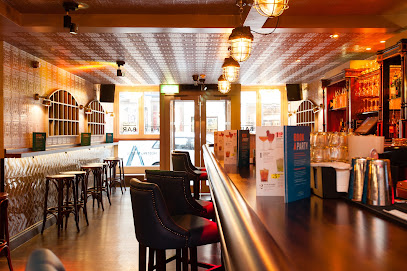
The Last Word Clifton Village Bristol
2.7 km
Quirky Clifton cocktail haven spanning three cozy floors, perfect for masterful mixes and intimate evenings in Bristol's upscale village.
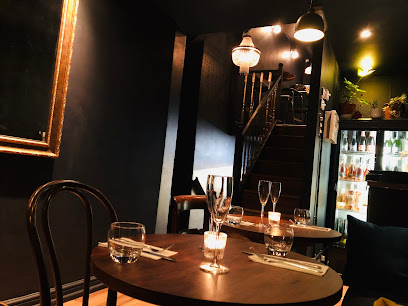
Hyde & Co
2.7 km
Discover Bristol’s secretive speakeasy with expertly crafted cocktails and a cozy vintage ambiance in the heart of Clifton.
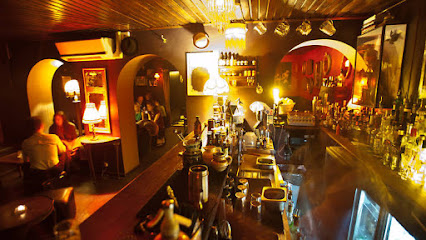
The Eldon House
2.7 km
Historic Victorian pub in Clifton, Bristol, known for craft beers, live music, and a cozy, vibrant atmosphere.
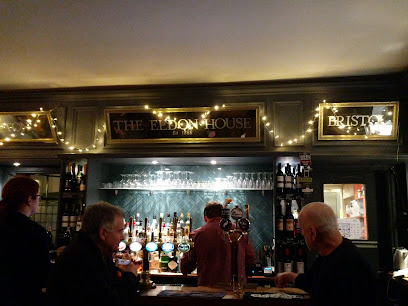
Nightclubs & after hour spots
Lizard Lounge
2.6 km
A small, loud student nightclub on Queens Road famed for cheap drinks, DJ nights and a packed, party-first atmosphere.

Bristol Lola Lo
2.7 km
An intimate, vintage‑Tiki nightclub in Clifton with neon cocktails, paper lanterns and a compact dancefloor for themed late‑night parties.

The Pearl NightClub
2.7 km
Bristol's intimate Clifton nightclub where fire DJs ignite weekend dance floors from 10pm till dawn—pure energy in a compact, electric space.

La Rocca
2.7 km
A lively Clifton nightclub blending classic tunes, affordable drinks, and a vibrant social scene in Bristol’s dynamic nightlife district.

Marquee Cocktail Bar & Nightclub
3.0 km
From refined cocktails to dawn-dancing beats, Marquee delivers Bristol's ultimate nightlife evolution in one stylish venue.

Silk Nightclub
3.0 km
Experience Bristol’s vibrant nightlife at Silk Nightclub, where energetic beats and a lively crowd create unforgettable nights in the city center.
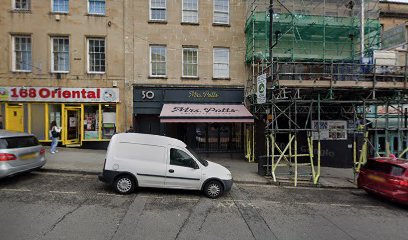
Antix
3.1 km
Bristol's enduring late-night haven on Park Street: cocktails till 1am, DJ beats till 6am, dancing into dawn with house, R&B, and reggaeton vibes.

Lakota
3.1 km
Bristol's gritty heartbeat: underground raves, thunderous bass, and nights that blur into dawn at this St Paul's legend.

Queenshilling - Bristol Bar and Nightclub
3.2 km
Bristol's iconic LGBTQ+ haven: dance, drag, and drinks in an intimate Frogmore Street gem fueling the city's electric nightlife.

OMG
3.2 km
Southwest's biggest gay club: massive dance floor, killer sound, themed nights, and inclusive vibes until dawn in Bristol's heart.

Basement 45
3.2 km
Experience Bristol’s underground nightlife at Basement 45, where eclectic music, intimate vibes, and vibrant events come alive until the early hours.

Popworld - Bristol
3.4 km
Dance to 90s and 00s pop anthems under neon lights at Bristol's ultimate nostalgic nightclub, where cheesy hits and POPTAIL cocktails fuel epic nights out.

Forró Bristol
3.4 km
Ignite your night with Brazilian forró rhythms: partner dances, live bands, and sweaty joy in Bristol's beating heart.
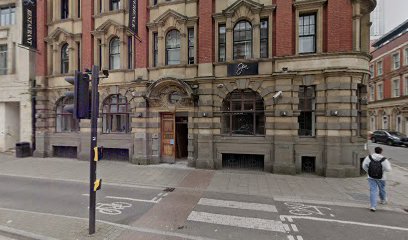
PRYZM
3.6 km
Experience Bristol’s vibrant nightlife at PRYZM, a multi-room club with themed music floors, student deals, and a lively party atmosphere.

Thekla
3.9 km
A converted cargo ship transformed into Bristol’s compact, industrial live-music venue and late-night club, famed for close-up shows and throbbing club nights.
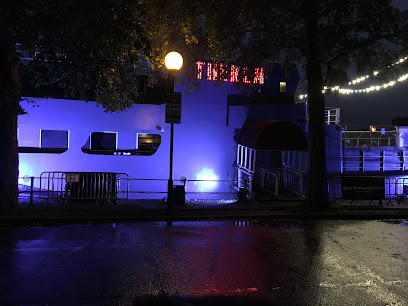
For the vibe & atmosphere seeker
- Relaxing
- Tranquil
- Scenic
- Unique
- Casual
For the design and aesthetic lover
- Vintage Styles
- Rustic Designs
For the architecture buff
- Historic
- Parks & Gardens
For the view chaser and sunset hunter
- Iconic Views
- Panoramas
For the social media creator & influencer
- Instagrammable
- Photo Spots
- Selfie Spots
For the eco-conscious traveler
- Sustainable
- Eco-Friendly
- Locally Managed
- Public-Transport Accessible
For the kind of experience you’re after
- Cultural Heritage
- Photowalk
- Nature Escape
- Day Trip
- Weekend Getaway
For how adventurous you want the journey to be
- Easy Access
Location Audience
- Family Friendly
- Senior Friendly
- Child Friendly
- Teen Friendly
- Wheelchair Access
- Solo Friendly
- Couple Friendly
- Vegetarian Friendly
- Vegan Friendly



